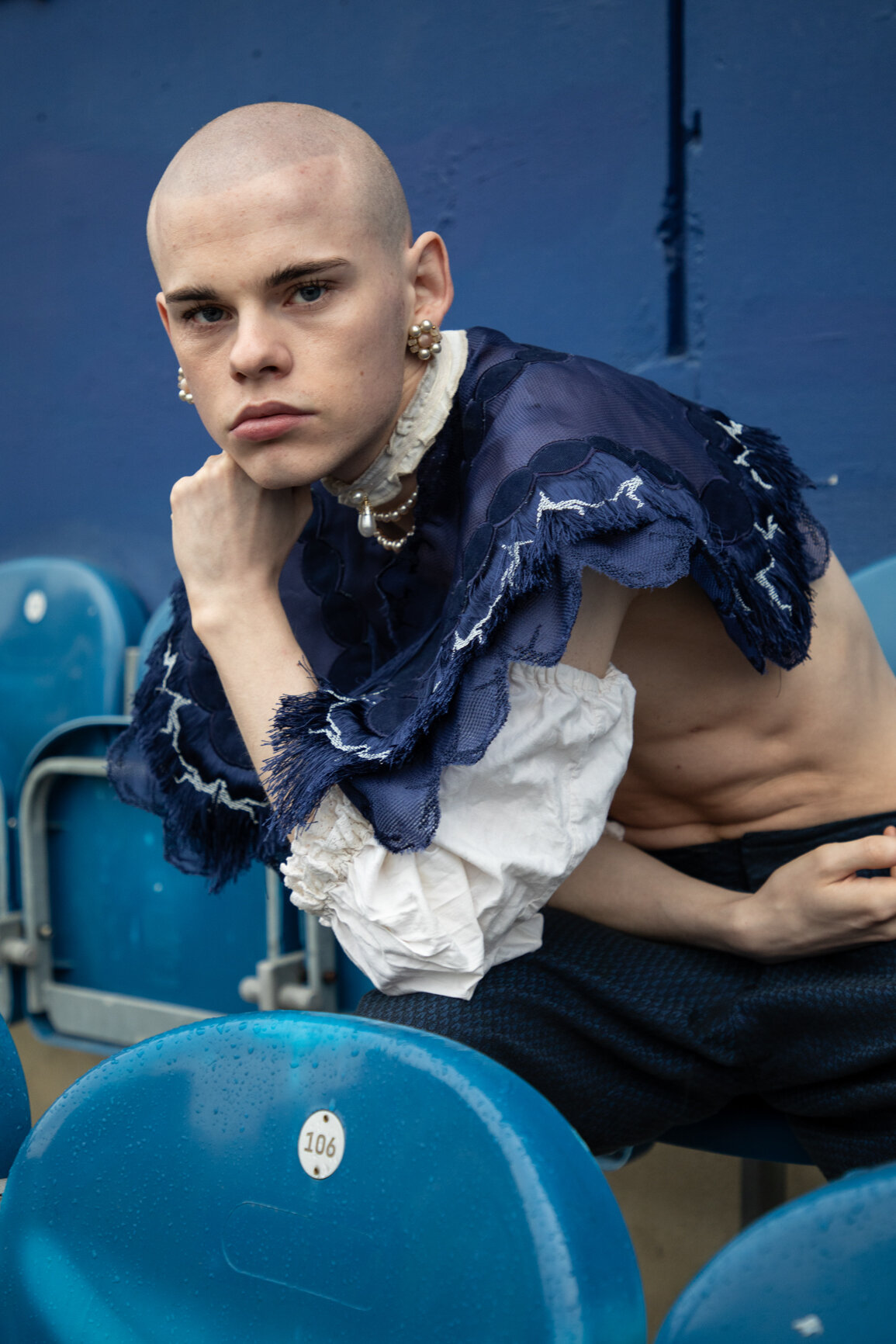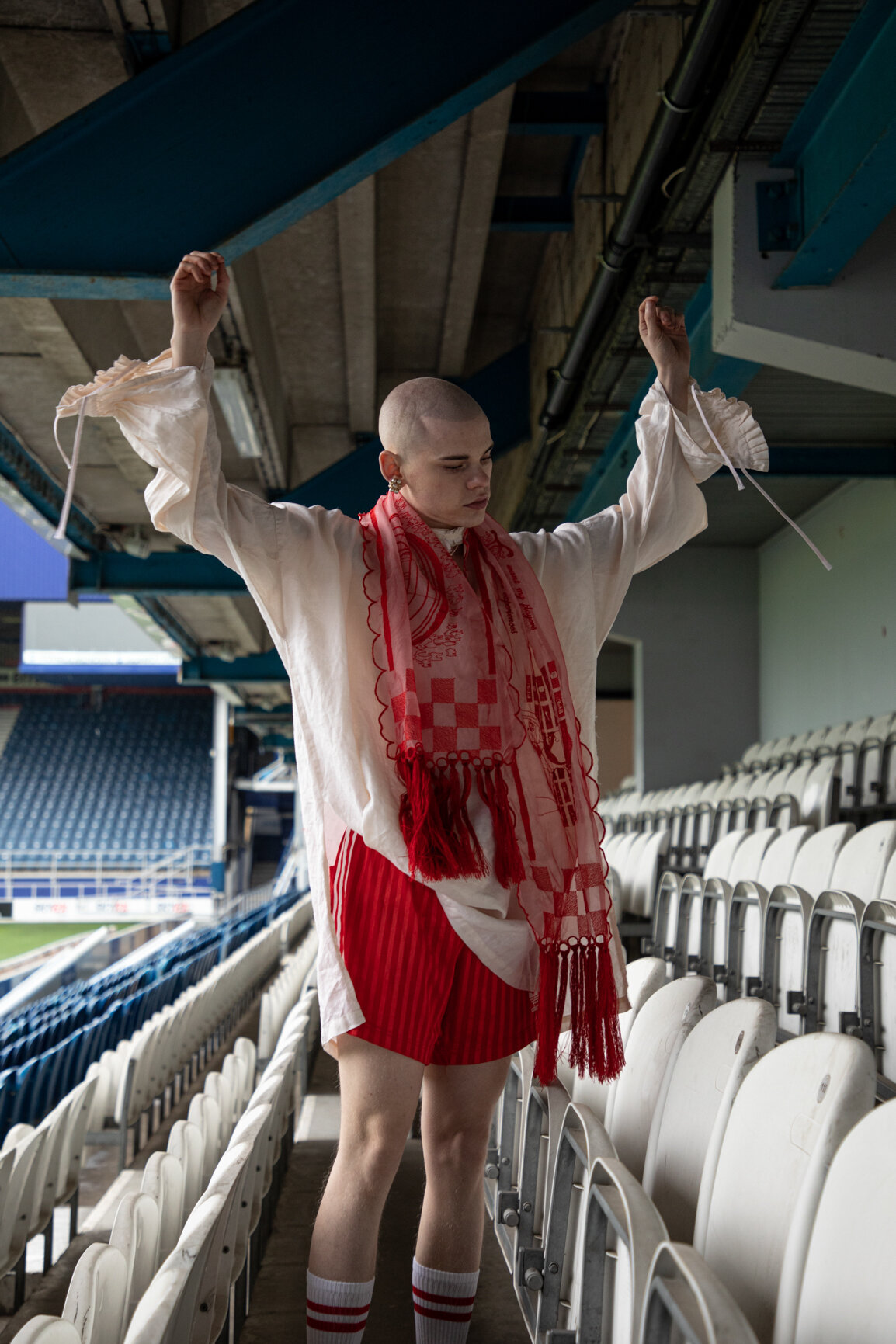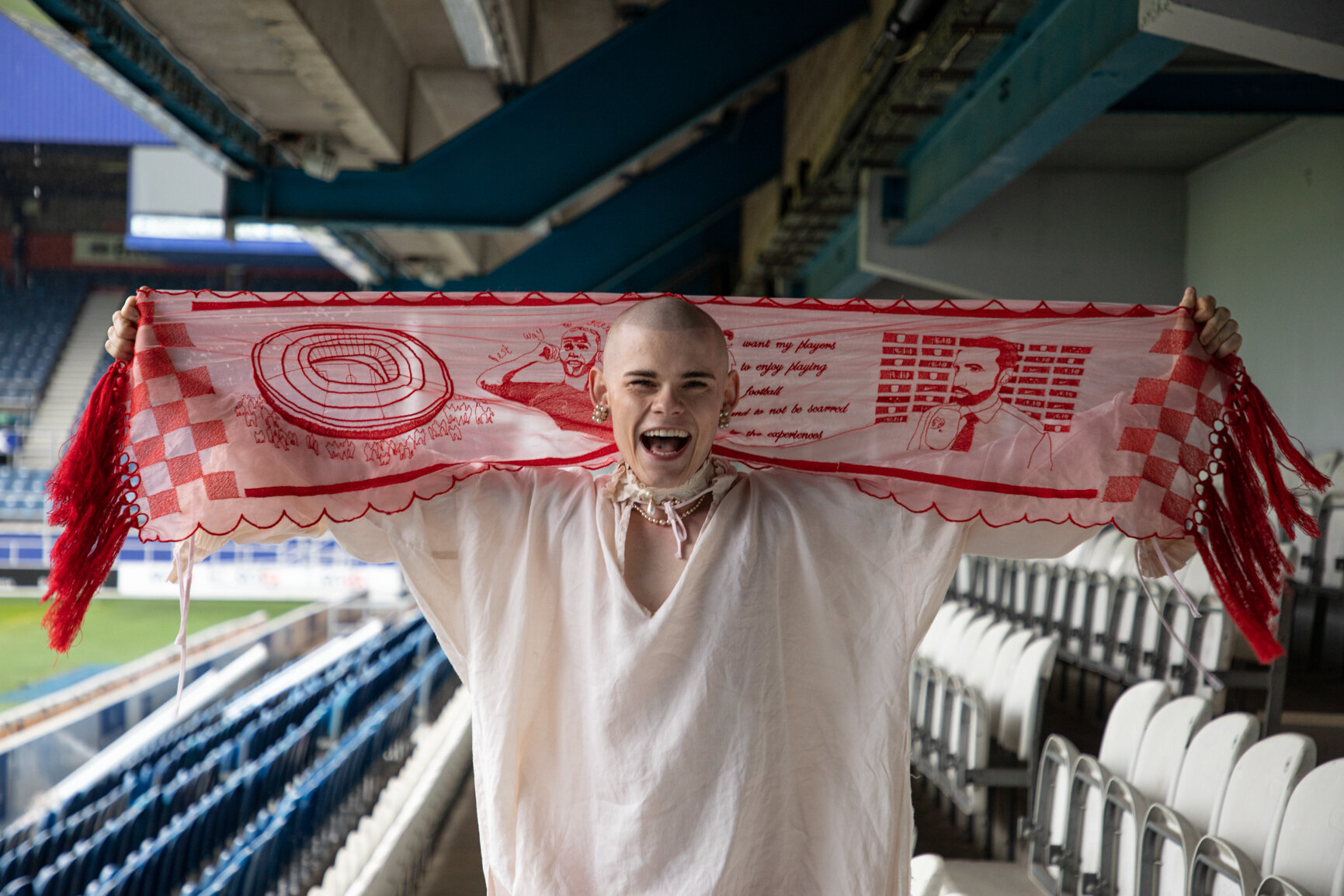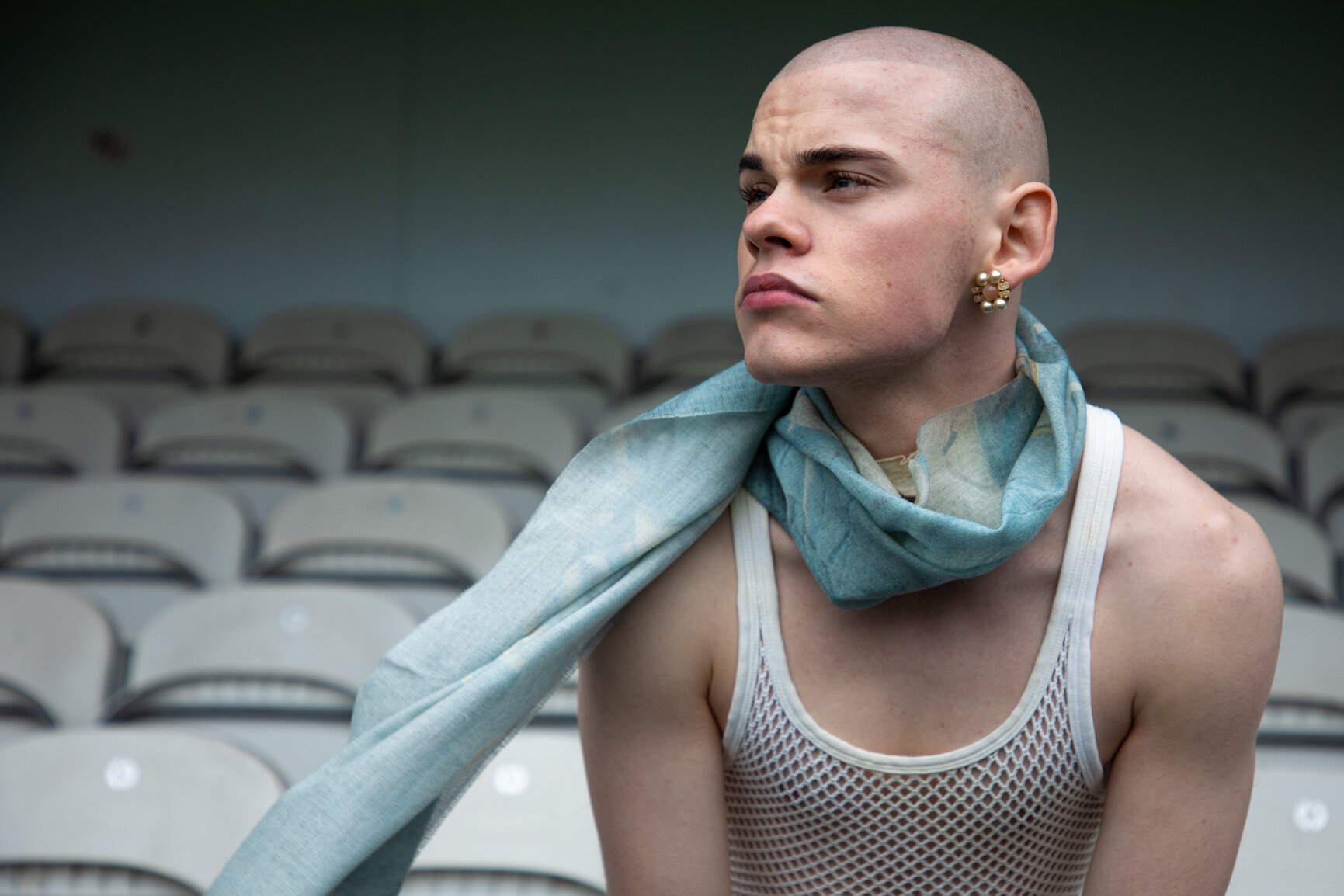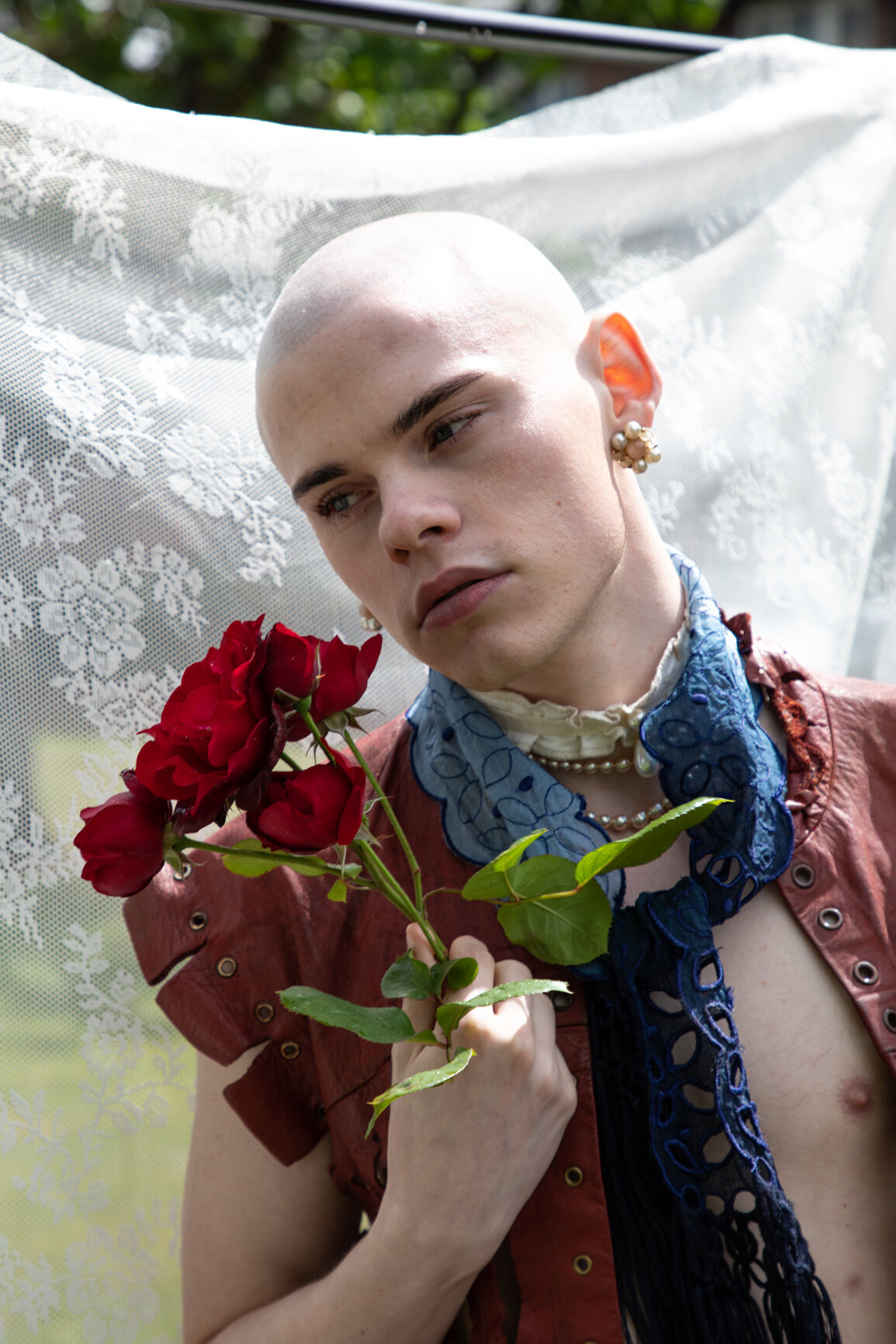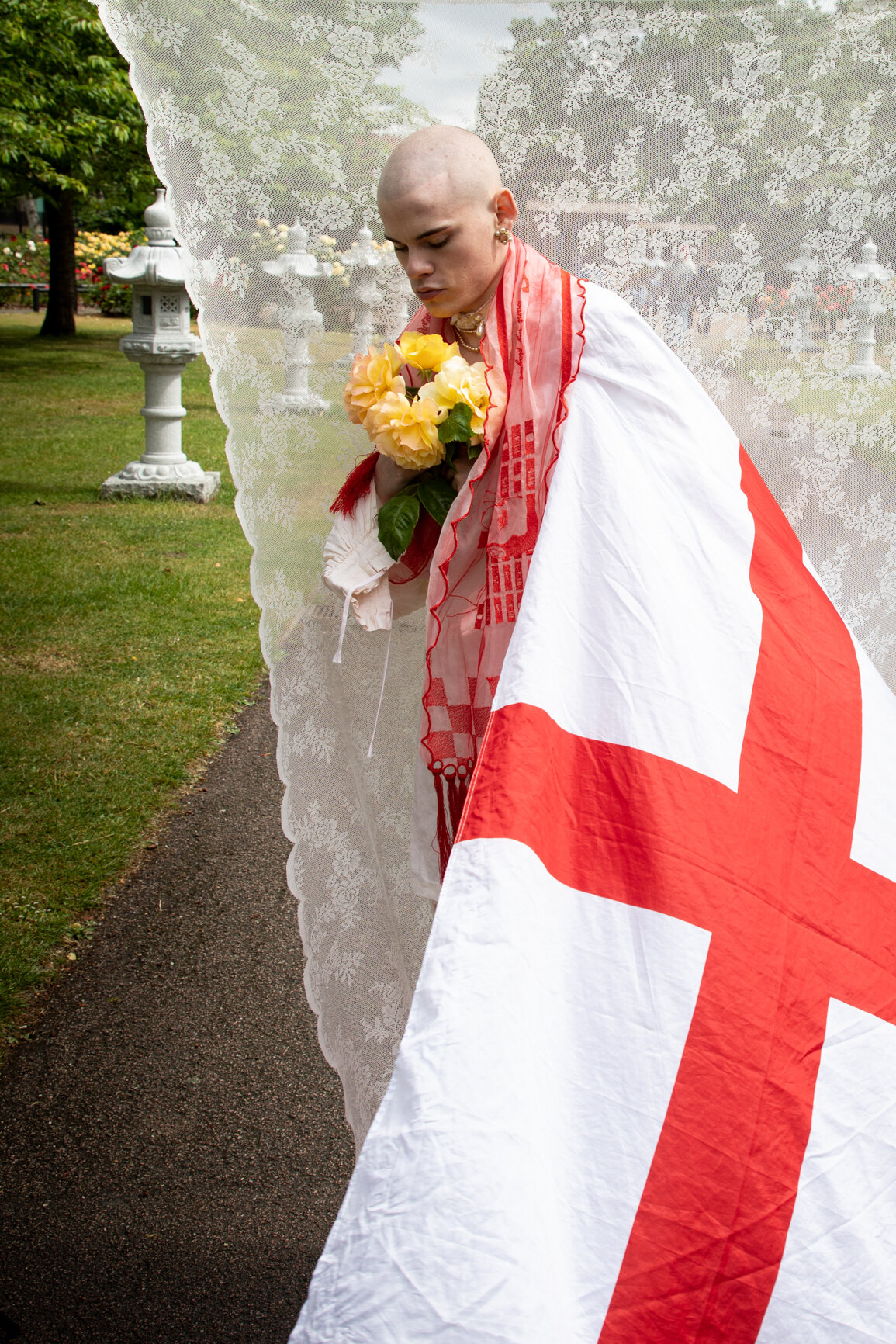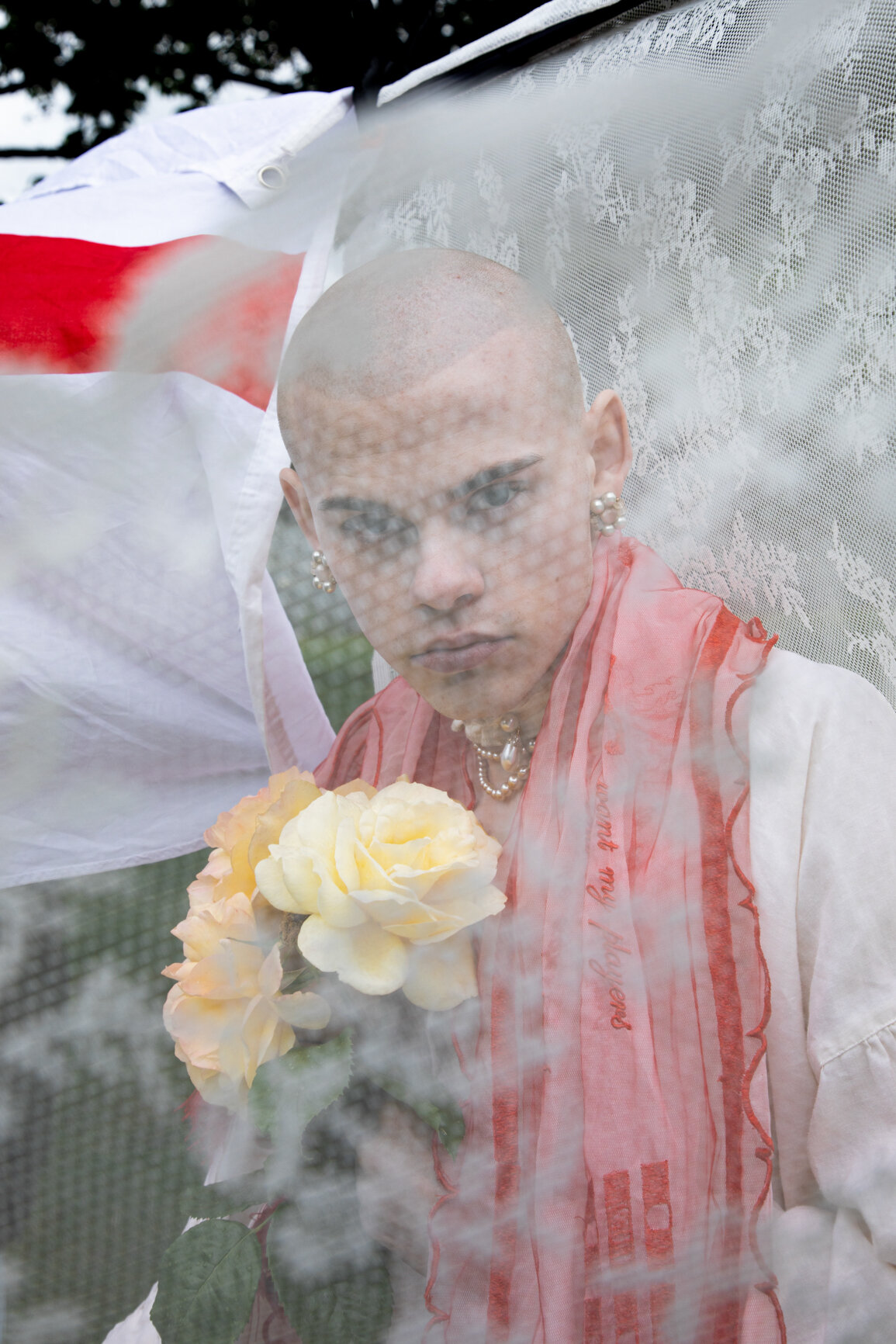WE ARE ONE
Photographer: Charlie Pryor
Football culture and “Masculinities” is the driving force of this project, looking to people in the local community as inspiration for the real, mundane society we live in. This collection also aims to highlight the behaviours we tolerate in our society, behaviours which are problematic; from offensive football chants to football hooliganism and violence.
Constance Burger is a British textiles designer. Focusing on illustrative motifs, her work often acts as a social commentary, expressing behaviours and themes noticed amongst her local community. A sense of narrative and storytelling is a dominant part of the design process; using figurative hand rendered illustrations and converting them into relevant embroidery techniques.
CAD embroidery is a strength in this collection; playfully using contemporary techniques and concepts with reference to historic design; specifically, the floral patterns used in lace from 17th century clothing design. Referencing the past in combination with digital embroidery bridges the gap between traditional craft and innovative contemporary design.
Artist Grayson Perry (2016) shares a similar opinion on the evolution of craft and the effect the digital age is having on design. “what I will stand up for is the relevance of craft in the information age is having on design. Some people think that craft is a nostalgic activity, like knitting with your grandma... But I say craft is necessary and thriving more than ever in the age of the internet.” Rooted in the beginnings of this collection is an exploration of the traditional craft of bob- bin lace making which has been carefully emulated with contemporary embroidery technology to create this aesthetic.
As well as sharing the view on this “new craft” age, Perry cre- ates work as a response to the people and context around him, using humour and satirical references executed through the use of digital craft. Similarly, the collection is highly influenced by surroundings in Finsbury Park, local observations of the overwhelming following and support Arsenal Emirates receive gives rise to comment within the artistry on both the positive and negative incidents surrounding football and culture.
The practise of craft and the production of timeless designs is an important factor in this collection. Embroidery is very time intensive and should be something which can be worn as fashion but also understood as a piece of art in its own right. Embroidery should be made to last; applying the ethos that one should have less clothes but of higher quality.
By combining football imagery, slogans and chants with accessories worn by men throughout the 17th and 18th century this collection questions the stereotypes we force upon men today but also considers how these stereotypes corrupt menswear design.


